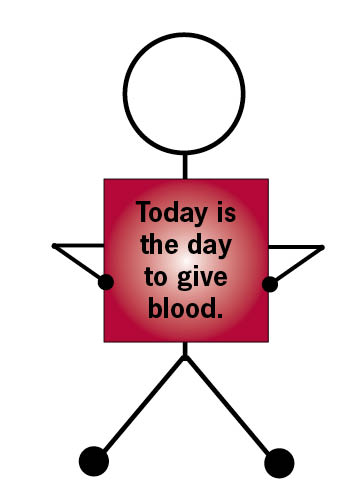National Blood Donor Month Shouldn’t End There
By Richard P. Console, Jr., an advocate for blood donation whose life has personally been touched by the generosity of blood donors. To read the unabridged article, please click here.
If you could save a life, would you? For ninety-five percent of eligible Americans, the answer apparently is, no.
We as a society talk a lot about saving lives. We talk about gun control, substance control, speeding control, defective products, fire hazards, and infectious diseases. Too often, maybe, we talk about only big-picture changes. We ask what kind of federal or state regulations should be passed to save lives, knowing that, in the tangle of red tape that accompanies any such process, more lives will be lost, often for no reason at all.
Maybe we don’t talk enough about what we, as individuals, can do.
I’m not recommending that you run into a burning building to save a baby, or anything like that. Though they are noble professions, I’m not asking you to quit your day job and instead volunteer as an EMT or firefighter, either. What I’m proposing, and what the families of 5,000,000 critically injured or ill patients pray for each year, is that you consider taking just one single hour out of your life to give something priceless: blood.
January was National Blood Donor Month, and though local and national news agencies promote the event every year, blood supply levels remain low. Only five percent of those eligible to donate actually do, according to the Mayo Clinic. The truth is, though we know such a thing as blood donation exists, though we hear about the Red Cross on the news, one of the most common reasons people give for not donating blood is that they simply don’t think about it.
No one wants to think about giving blood, but not because no one cares. In reality, no one wants to believe that a blood supply shortage could ever affect their lives personally. You don’t want to imagine what it would be like if you or your spouse, your children, your siblings, or your best friend were the one who needed blood.
I hope you never need a blood transfusion. I hope that no one you love ever has to rely on the selflessness of blood donors just to make it through the night. When someone in the United States needs a transfusion every two seconds, as the American Red Cross reports, those odds aren’t in anyone’s favor. The Mayo Clinic reports that 25 percent of Americans will need a blood transfusion at some point during their lives.
Let me tell you with absolute sincerity that having been on the other side of the situation as the loved one of a critically injured accident victim, the people who take that hour to donate are heroes.
The Gift of Blood Donation
When you donate a single unit of blood, you can save as many as three lives. That means three people who are suffering from cancer, or who have been mangled in terrible car crashes, or who have been hurt in other unimaginably horrible accidents, don’t have to die. Three families don’t have to bury a loved one who should have had a full life left ahead of them.
The impact goes beyond numbers. There is no statistic to measure the influence of the lives saved each time a blood donor gives an hour of time and a pint of blood.
* * * * * * * * * * * * * * * * * * * *
For an appointment to give blood with Stanford Blood Center, please call 888-723-7831 or click here.

